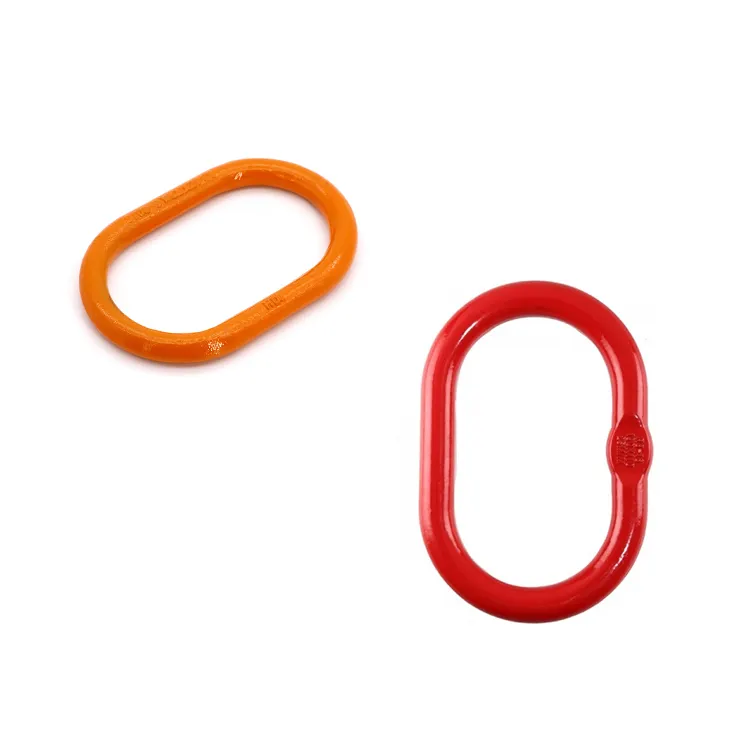News
Jan . 23, 2024 15:00 Back to list
Hooks For Lifting, Winching, Towing, And Pulling
This section is dedicated to our selection of rigging hooks. We carry hooks made for virtually every application, from foundry hooks that are designed to detach from a load easily, to heavy-duty Self-Locking Hooks that close automatically for added security.
Hooks may be used in top-loading, lifting, winching, towing, or any number of other applications. We carry Clevis Grab Hooks, Eye Hooks, Weld-On Hooks, and Clevis Slip Hooks.
Forged Master Link
If you are interested in learning more about our hooks, this guide will hopefully answer your questions. We are going to break down what some of these terms mean, along with examples of more specific products we carry.
What Are The Benefits Of Using Self Locking Hooks?
Self Locking Hooks include a spring release trigger. When you use one of these hooks, the latch closes automatically. This is perfect for those types of applications where you want added security in your rigging or loading systems.
Types Of Self Locking Hooks:
- Self Locking Swivels
- Self Locking Eye Hooks
- Self Locking Round Slings
- Self Locking Clevis Grab Hooks
What Are The Benefits Of Using Foundry Hooks?
Foundry Hooks have an open shape, simplifying the processes of attaching and detaching loads. This makes them popular for top loading, applications with chain slings, and for use with objects that don’t have attachment points.
Types Of Foundry Hooks:
- Foundry Eye Hooks
- Clevis Slip Hook Foundries
When Should You Use A Weld-On Hook?
Weld-On Hooks are commonly used to attach with mobile lifting equipment. They provide an exceptionally secure grip and are popular for use with excavators.
Our Weld-On Hooks are made with high-grade alloy steel. They including a large weld pad and replacement latches are available for them.
Benefits Of Our Weld-On Hooks:
- Provides A Super Secure Grip
- Ideal For Use With Excavators
- Easily Used For Sling Attachments
- Attaches To Mobile Lifting Equipment
What Are The Advantages Of Using Eye Hooks?
In some applications, you want to add more security to your attachments. In these cases, using an Eye Hook with a shutting gate is ideal. Some of our Eye Hooks, such as our Foundry Eye Hooks are designed with an oversized opening to make inserting chains and wire rope slings easier.
What Is A Clevis?
Unlike other hook categories, a clevis is defined by the fastener at the top of the hook rather than the general shape of the hook. The U shape on the top end of these hooks is fastened with a pin.
Types Of Clevis Hooks:
- Clevis Slip Hooks
- Clevis Slings With A Latch
- Self Locking Clevis Grab Hooks
What Is the Difference Between A Grade 80 Hook & A Grade 100 Hook?
The grade of a hook refers to the grade of chains that a hook is designated for. The higher the grade of a chain, the higher the workload it can take on. Grade 80 chains are more economical, whereas grade 100 chains are more heavy-duty. Grade 80 chains are commonly used in towing, while grade 100 chains are commonly used in construction, manufacturing, and heavy rigging.

